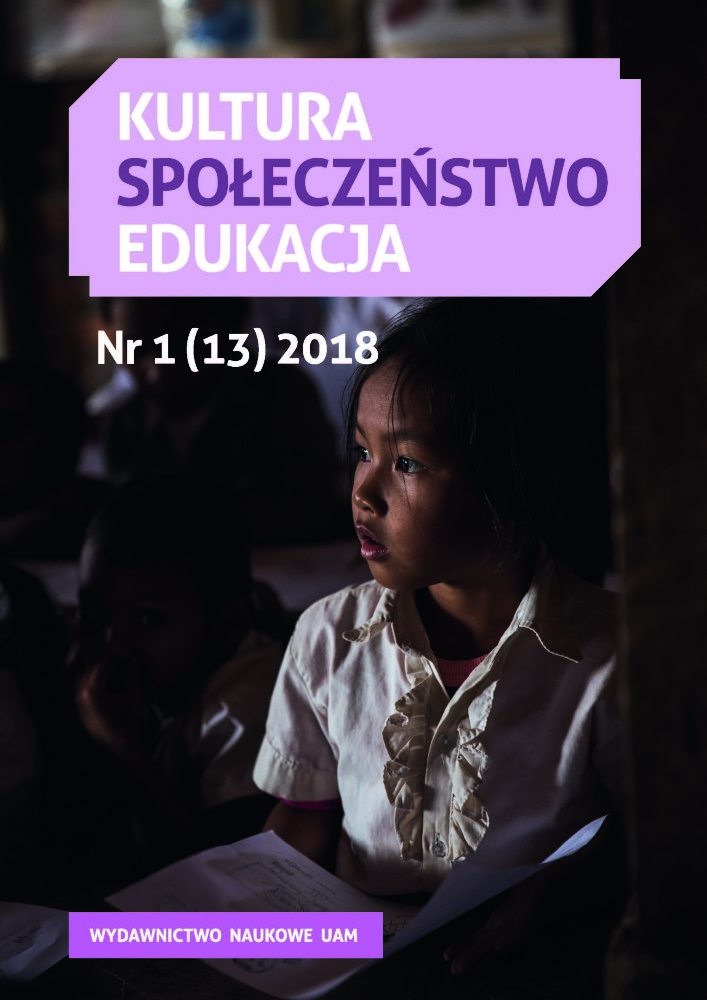Abstrakt
This article examines the concept of undocumented childhood. Undocumented children have to navigate between protected (as minors) and unprotected (as young adults) contexts. Therefore, they live not only in a relatively difficult situation as children staying in another country, but also face other risks due to their uncertain futures. Their situation calls for a re-examination of the frame that has been triggered to incorporate them. In particular, one may ask: what does it mean to provide children with rights and protections that ultimately expire. Thus, the article aims to bring the discussion about children as a minority group
back. It helps to assure that migrant children will be considered as children first, and not as foreigners.
Bibliografia
Enriquez L.E. (2015). Multigenerational punishment: shared experiences of undocumented immigration status within mixed-status families. “Journal of Marriage and Family” 77.4, pp. 939–953.
Feinberg J. (1980). The child’s right to an open future. [In:] W. Aiken, H. LaFollette (eds). Whose Child? Children’s Rights, Parental Authority, and State Power. Totowa.
Gonzales R.G. (2009). On the rights of undocumented children. “Society” 46.5, pp. 419–422.
Gonzales R.G. (2011). Learning to be illegal: undocumented youth and shifting legal contexts in the transition to adulthood. “American Sociological Review” 76.4, pp. 602-–619.
Gonzales R.G., Suárez-Orozco C., Dedios-Sanguineti M.C. (2013). No place to belong. contextualizing concepts of mental health among undocumented immigrant youth in the United States. “American Behavioral Scientist” 57.8, pp. 1174–1199.
Halvorsen K. (2002). Separated children seeking asylum: the most vulnerable of all. “Forced Migration Review” 12, pp. 34−36.
Hunter A. (2001). Between the domestic and the international: the role of the European Union in providing protection for unaccompanied refugee children in the United Kingdom. “European Journal of Migration and Law” 3.3, pp. 383−410.
James A. (2007). Giving voice to children’s voices: practices and problems, pitfalls and potentials. “American Anthropologist” 109.2, pp. 261–272.
James A., Prout A. (1990). Constructing and Reconstructing Childhood. Contemporary Issues in the Sociological Study of Childhood. London.
Jenks Ch. (2009). Constructing childhood sociologically. [In:] M.J. Kehily (ed.). An introduction to childhood studies, 2nd edition. Maidenhead.
Kincheloe J.L. (2002). The complex politics of McDonald’s and the new childhood: colonizing kidworld. [In:] G. S. Cannella, J. L. Kincheloe (eds), Kidworld Childhood Studies, Global Perspectives, and Education. New York, pp. 75–121.
Kymlicka W. (1996). Multicultural Citizenship: A Liberal Theory of Minority Rights. Oxford.
Massey D. (1994). Space, Place and Geometry. Cambridge.
Massey D.S. (2008). New Faces in New Places: The New Geography of American Immigration. New York.
Mayall B. (1994). Children’s Childhoods: Observed and Experienced. London.
Mongomery H. (2009). An Introduction to Childhood: Anthropological Perspectives on Children’s Lives. Malden.
Morrow V. (1996). Rethinking childhood dependency: children’s contributions to the domestic economy. “Sociological Review” 44.1, pp. 58–77.
Olivas M.A. (2012). No Undocumented Child Left Behind. Plyler v. Doe and the Education of Undocumented Schoolchildren. New York.
PICUM (2008). Undocumented Children in Europe: Invisible Victims of Immigration Restrictions. Brussels.
Portes A., Rivas A. (2011). The adaptation of migrant children. “Future Child” 21.1, pp. 219–246.
Rumbaut R.G., Komaie G. (2010). Immigration and adult transitions. “Future of Children” 20.1, pp. 39–63.
Ryo E. (2013). Deciding to cross: norms and economics of unauthorized migration. “American Sociological Review” 78.4, pp. 574–613.
Spencer S. (2016). Postcode lottery for Europe’s undocumented children unravelling an uneven geography of entitlements in the European Union. “American Behavioral Scientist” 60.13, pp. 1613–1628.
UNHCR (2014). The Heart of the Matter. Assessing Credibility when Children Apply for Asylum in the European Union. Geneva.
Uprichard E. (2008). Children as ‘being and becomings’: children, childhood and temporality. “Children and Society” 22.4, pp. 303–313.
Wernesjo U. (2012). Unaccompanied asylum-seeking children: whose perspective? “Childhood” 19.4, pp. 495–507.
Wong T.K., Garcia A.S. (2016). Does where I live affect whether I apply? The contextual determinants of applying for deferred action for childhood arrivals. “International Migration Review” 50.3, pp. 699–727.
Zelizer V. (1985). Pricing the Priceless Child: The Changing Social Values of Children. New Haven
Licencja
Prawa autorskie (c) 2018 Łukasz Albański

Utwór dostępny jest na licencji Creative Commons Uznanie autorstwa – Bez utworów zależnych 4.0 Międzynarodowe.
